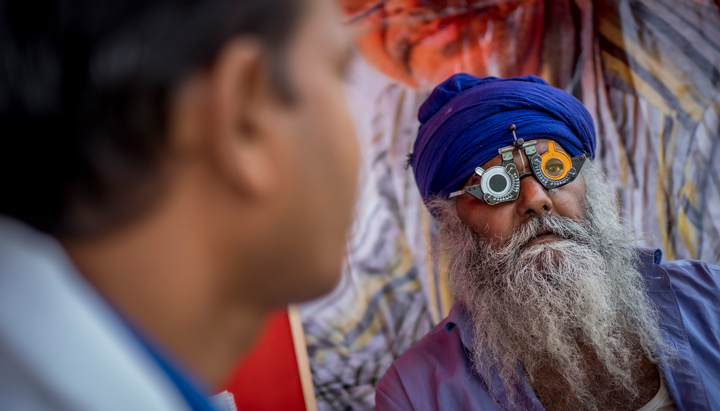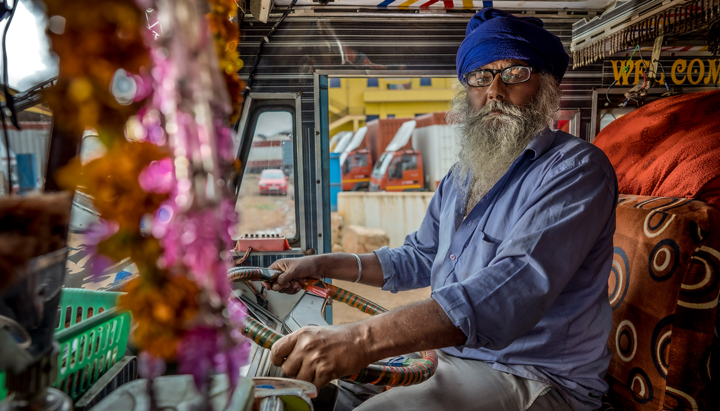Transport safety
Moving large numbers of people, products and equipment by road, rail, sea and air poses safety risks. We develop best-practice standards within Shell to reduce transport safety risks, and work with others such as specialist contractors, industry bodies, non-governmental organisations and governments.
Visit www.shell.com/sustainability/safety/transport-safety for more on our approach to transport safety.
In our maritime business, for example, we are working with our contractors to improve the quality and consistency of their safety management. This includes developing more effective tools to learn from incidents and improve behaviours. In 2019, Shell and contractors visited more than 4,000 ships to engage mariners on safety and make the programme more effective.
We charter planes to transport passengers, observe pipelines and carry out geophysical surveys. These planes flew around 13,000 hours in 2019 for Shell.
We used helicopters for about 46,000 flying hours in 2019 to carry people to and from facilities, onshore and offshore.
In 2019, we worked with offshore helicopter safety association HeliOffshore and the International Association of Oil & Gas Producers (IOGP) in a number of areas to drive safer ways of working with aircraft. For example, we developed a common set of industry specifications for offshore helicopter flights that includes benefits such as warning systems with earlier hazard alerts.
Road transport remains a challenging and complex area for industry worldwide. To improve performance, we focus on safe practices and behaviours and calling for safe vehicle design.
Road traffic accidents claim around 1.35 million lives every year, according to the World Health Organization. In 2019, Shell employees and contractors drove a combined distance of around 575 million kilometres on business in around 60 countries. There were two road transport-related fatalities under the operational control of a Shell company in 2019.
We run road safety programmes, such as our mandatory defensive driving course that teaches safe techniques and behaviour.
In 2019, around 13,200 Shell employees and contractors completed some form of in-vehicle training. Everyone who drives on public roads on Shell business also needs to take an annual online defensive driving training course.
We also continued to share our safety experience and standards with other operators, contractors and professional organisations. For example, as a member of the IOGP, we advocated for its policy that all members only buy new light vehicles that conform to the highest globally accepted safety rating, known as the New Car Assessment Programme (NCAP 5 star). Shell adopted this policy on January 1, 2019, and is applying it to all our owned, contracted and leased light vehicles worldwide.
Transporting fuel
In 2019, we continued to implement learnings from a tragic roll-over incident that occurred in Pakistan in 2017, involving a road tanker hired by a company that was providing road transport services to Shell Pakistan Limited. More than 200 people died after the spilled fuel ignited as they were collecting it from the incident site.
The Royal Dutch Shell plc Board and Executive Committee have launched several improvement programmes to be adopted throughout Shell. This includes a road transport risk management initiative focused on high-risk countries.
Shell Pakistan Limited continues to work with regulators, emergency services and the wider oil and gas industry in Pakistan with a view to improving safety standards. Shell Pakistan Limited is also working with the road transport industry, including hauliers and retailers, and local authorities specifically to address driver well-being, fatigue and care.
In July 2019, there was another tragic roll-over incident in Pakistan involving a contractor road tanker, which led to one contractor (the co-driver of the truck) being fatally injured. The investigation report noted there were improvements in response procedures compared to the 2017 incident. This included emergency teams arriving on site more quickly, blocking off the site to avoid people collecting spilled fuel and a full recovery of the truck’s remaining cargo.
Internal voice

Nigel Hobson
VP Trading and Supply Operations
“Shell contractors, distributors and other partners travel around 1.2 billion kilometres a year to deliver fuel to our customers. We have around 3,000 trucks on the road at any one time. This is a significant safety challenge, especially for fuel transport in high-risk countries.
“We focus on several elements to reduce risk as much as possible. First, we carefully consider fuel transport risks in our business growth plans. We contract with professional transport companies that meet our health and safety standards and requirements, and that focus on employing competent drivers.
“We run road safety programmes for our employees and contractors to build skills and to promote the right behaviours. This includes running fatigue awareness programmes.
“We work with our road transport contractors to increasingly use advances in technology to support drivers to work more safely. For example, we are expanding the use of in-vehicle monitoring devices with cameras to help provide more targeted coaching to drivers.
“While we work to minimise the likelihood of incidents, sadly some do occur. We work with local authorities, specialist contractors and other partners to improve emergency response. We also share our safety standards and experience with the fuel transport industry and government authorities to help improve road safety infrastructure and increase industry capability in emergencies.”
Eye care for truckers
India has one of the worst traffic accidents records in the world, with someone dying on the road every four minutes, according to government figures. About a quarter of these accidents involve heavy commercial vehicles, such as trucks and buses.
We take the health and safety of our employees very seriously, so all our drivers get their eyes checked regularly. However, we know this is not necessarily the case for other drivers.
Shell India and social partner VisionSpring are working together on a road safety initiative in India. The #DriveSafeIndia Eye Camps campaign provides free eye tests and free prescription spectacles to truck drivers.
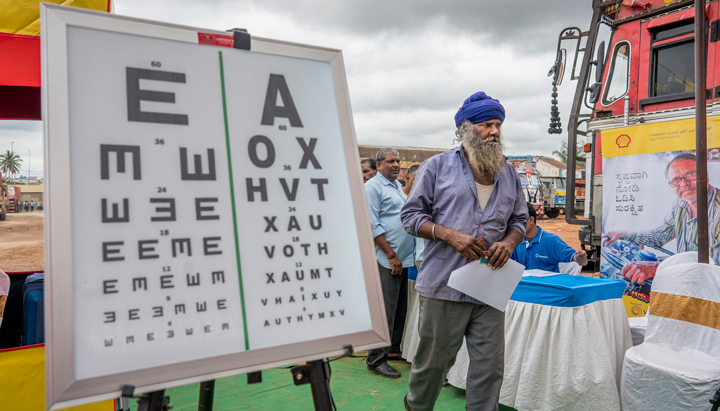
Eye-testing centres have been set up at truck stops, ports and other transport hubs where truck drivers congregate.
As part of the eye care campaign in India, we found more than two-thirds of truck drivers had never had their eyes tested, with a quarter unable to see sufficiently beyond 20 metres.
In 2019, more than 120,000 commercial drivers had their eyes tested and 84,000 received free prescription spectacles, mostly on the spot. The programme aims to reach 365,000 drivers by the end of 2020.
Read more about this programme at www.shell.com/inside-energy/a-clear-vision-for-india-truck-drivers.
External voice

Ella R. Gudwin
CEO VisionSpring
“Sometimes solutions to complicated problems like road safety are sitting, quite literally, right in front of our eyes. Vision screening and eyeglasses are a simple, scalable intervention with immediate benefit. With Shell, we are ensuring that drivers and allied transportation workers can see clearly so that everyone on the road is safer.
“We have found that 68% of drivers attending the #DriveSafeIndia vision camps have never had their eyes tested before and 69% of drivers who need glasses are acquiring their very first pair through the programme. With glasses, they can sustain their livelihoods, get home safely to their families and reduce the risk of traffic accidents – one of India’s leading causes of death and injury.
“Our work together in India is just the beginning of what’s possible. We are looking forward to others joining in this high-impact initiative.”
 Climate change
Climate change
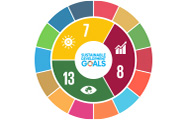 Sustainable development goals
Sustainable development goals
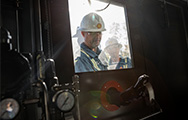 Safety
Safety
 About our data
About our data
